He has access to Russian President Vladimir Putin, and he bought a Palm Beach mansion for an eye-watering sum ten years ago from Donald Trump when the latter was short of finance. His fortune is estimated by Forbes magazine at 6.8 billion dollars (Forbes places him as 242nd richest person in the world), although some well-informed estimates put his wealth at double that amount. His assets on public record include islands, multiple properties worldwide, an Airbus plane, luxury vehicles and a vast collection of artworks.
But this investigation by Mediapart, drawing from millions of Football Leaks documents obtained by German news magazine Der Spiegel and shared with its partners in the European media network EIC, and which includes legal files and information gathered from members of his close entourage, reveals that in fact he wanted to buy himself much more than that – namely, a country.
Nothing escapes Dmitry Rybolovlev in Monaco, his place of residence. Within this tiny Riviera city-state perched on a rock and surrounded by France, he gratifies ministers and civil servants, contributes to the writing of laws, sells his influence and enriches those who help him. In this principality that constitutes a tax haven in the belly of Europe, he seeks an asset that has no price: impunity.
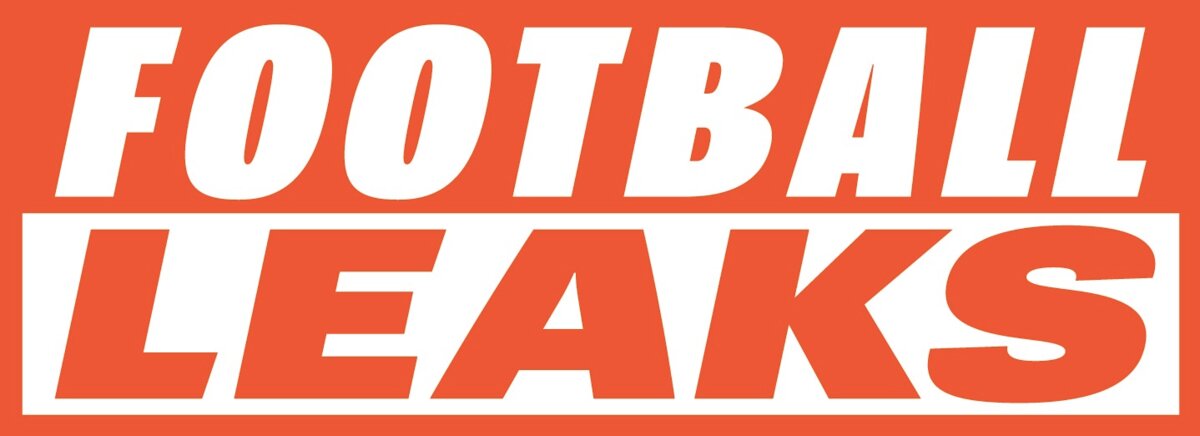
Enlargement : Illustration 1

Mediapart is publishing the detail of this extraordinary, unparalleled saga, over seven days. Through this series of reports, those who are interested chiefly in football will discover how the president of the club AS Monaco has used his fortune to gain the support of the leading figures in French football. Those whose interest lies in geopolitics will discover how, in the space of a few years, an individual can become one of the most powerful people in the world.
For until now, Dmitry Rybolovlev, a trained doctor who will turn 52 on November 22nd and who set his sights on AS Monaco in 2011, has remained largely unknown to the wider public beyond the descriptions of “billionaire”, “Russian” and “oligarch”.
The principality’s club, which plays in France’s top-flight division Ligue 1, where it has won eight league titles and developed some of France’s best-known players (and latterly one of the game's rising global stars Kylian Mbappé), was a shadow of its past glory when Rybolovlev bought into it with a majority stake. At the time, AS Monaco, a plaything for reigning monarch Prince Albert II but which the microstate was reluctant to bail out, was languishing at the bottom of Ligue 2 and facing possible relegation into France's third division.
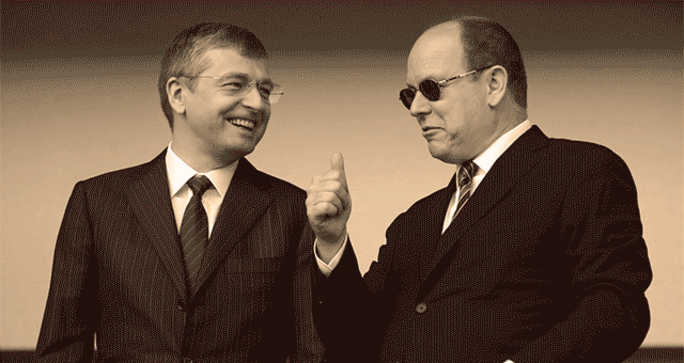
Enlargement : Illustration 2

Rybolovlev identified this fault in ‘the Rock’, as Monaco has long been nicknamed (le Rocher in French), and arrived overnight, cheque book in hand. Between December 2011 and June 2014, he poured 326 million euros into the club – a trifle for the multi-billionaire.
The Russian’s enormous wealth comes from industrial interests he held in the region of Perm, close to the Ural Mountains, where he was born in 1966. In the early 1990s, during the economic liberalisation of Russia after the fall of the Soviet Union, Rybolovlev, who had graduated from a medical institute in Perm, became an associate of a local chemicals industry businessman, Evgeny Panteleymonov. In 1995, Panteleymonov was murdered in a gun attack in front of his apartment building. Rybolovlev and Panteleymonov had been in disagreement over their business strategy.
According to the case files of the official investigation into the murder, as revealed by Russian newspaper Novaya Gazeta , another Rybolovlev associate, Oleg Lomakin, who was arrested in 1996, claimed that the two guns used in the attack were supplied by Rybolovlev. Lomakin said he had given them to the two people suspected of being the gunmen, both of whom were involved in organised crime and who were allegedly not paid their promised fee.
At the time, Rybolovlev was domiciled in Geneva. He was arrested the following year during a trip to Perm and placed in preventive detention for 11 months. But the case against him was based entirely on the accusation made by Lomakin, who became increasingly evasive in his claims. With no clear evidence of Rybolovlev’s involvement, and following the support he was given by Panteleymonov’s widow, who insisted that Rybolovlev had always enjoyed good relations with her husband, the case against him was dropped. It was e decision, reported Novaya Gazeta, that “appeared reasonable”. In an interview with French weekly Paris Match some years later, Rybolovlev said of the experience: “It was very difficult, particularly the physical shock of the detention.”
His subsequent life was less painful, consisting essentially in accumulating his wealth. Beginning in the 1990s, he invested in Uralkali, a Russian potash mining and production company, the world’s biggest potash producer, principally for use as a fertilizer, and to the point of obtaining a 75% stake in the company. In 2005, his wealth, according to his then wife, had passed the one-billion-dollar mark for the first time. Two years later, when he applied for Swiss nationality, he earned one billion dollars from the sale on the London Stock Exchange of 12.75% of Uralkali shares.
It was the beginning of a period of serious spending by Rybolovlev, who invested in artworks (he has accumulated an estimated 2 billion euros-worth kept in free ports), and in biotechnologies (with 500 million dollars placed in US start-ups), while enjoying an exceptionally lavish lifestyle. His worldwide property acquisitions include a villa in Hawaii that belonged to the US actor Will Smith, which he bought for the equivalent of 15 million euros, the domaine de Valfère in Saint-Tropez on the French Riviera which includes a villa and 67,500 square metres of landscaped gardens, for 50 million euros, a corporate version of the Airbus A319 airliner – which at 34 metres in length is the longest private jet on the market – costing 55 million euros, and another private jet for 30 million euros.
When, in 2011, Rybolovlev’s eldest daughter Ekatarina (aka Katia), then aged 22, left to study in the United States, he bought her an enormous loft in Manhattan (comprising ten bedrooms, seven dressing rooms, a library and a panoramic terrace) for 88 million dollars. It was then the most expensive apartment ever sold in New York.
Two years later, the billionaire bought Ekatarina the Greek island of Skorpios where, in October 1968, Jackie Kennedy married Greek shipping magnate Aristotle Onassis. Almost 50 years later, Ekatarina Rybolovleva held her marriage there to Juan Sartori, a Uruguyan businessman who this autumn announced he is bidding to stand in his country’s next presidential elections.
For his younger daughter Anna, born in 2001, Rybolovlev has dedicated her name to a luxury yacht he owns, called My Anna. Registered in the Cayman Islands, and often cruising the Mediterranean, the 67-metre-long vessel is estimated to be worth 80 million euros.
In 2008, two Panama-registered trusts he reportedly controls bought an apartment in Monaco that was evaluated the previous year as worth 100 million euros. According to legal papers from his divorce procedure in Switzerland in 2014, the Panamanian trusts paid “certain charges relative to the couple’s living costs in Monaco”. Also in 2008, the Rybolovlevs bought a town house opposite the French presidential office, the Elysée Palace, for 19 million euros.
Discreet by nature and cautious out of necessity
But Rybolovlev’s rise not been without its setbacks. In 2006 a Uralkali mine in Berezniki, about 165 kilometres north east of Perm, collapsed and in 2009 the Russian authorities opened an investigation into what was a major environmental disaster, one of the biggest since the Chernobyl nuclear reactor accident in Ukraine in 1986.
Rybolovlev decided to withdraw from the scene. He sold off his stake in Uralkali in 2010, officially to other businessmen close to the Kremlin. Meanwhile, in 2008 his wife filed for divorce. Three years later, while the acrimonious legal battle of the division of the couple’s joint wealth was fought out in the Swiss courts, Rybolovlev headed off to Monaco.
According to several people close to him the billionaire, who has never learned a second language, is a cold but mild-mannered character who is methodical to excess. Every morning, seven days a week, Rybolovlev consults the notes that have been carefully prepared by his personal assistant, Olga Khorobrykh, who plans every aspect of his life. The staff of his 'family office', which handles his wealth, comprises dozens of employees divided into six departments (finance, legal affairs, property management, internal controls). They are expected to fall into line with the habits of the man they nickname “The Principal”. When lunch is taken at 11.45am, all the staff sit with the boss and eat the same as him. When he is due to fly away on his jet, the expected journey time to the airport that day is checked by the Russian's chauffeur who drives the route an hour earlier.
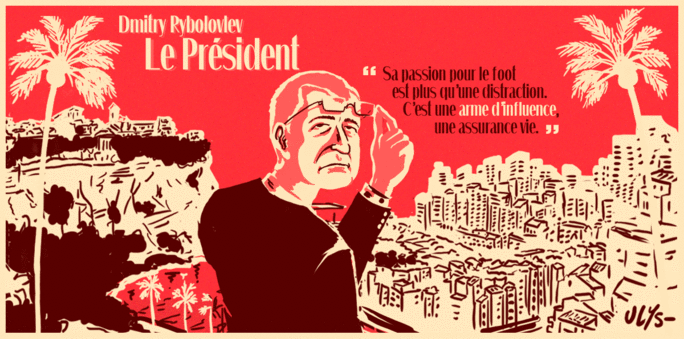
Enlargement : Illustration 3

Rybolovlev is also surprisingly alone and isolated. He is not known to have any friendship for friendship's sake, one that does not serve an end. The guests who attended his 46th birthday celebration, held at his idyllic residence in Hawaii, still recall how the clearly weary host left his own party at around 9pm.
However, the Russian did make an effort for his 50th birthday, when from November 19th to the 26th 2016, he organised a week-long celebration on the Caribbean island of Necker – owned by the British tycoon Richard Branson – which included concerts and regattas. The guests were warned in advance: “We kindly ask you not to publish any photo or video on social networks.” It was a sumptuous programme, including a barbecue accompanied by music from the Buena Vista Social Club orchestra, dinner listening to a concert by Lauryn Hill, and contemporary ballet. The dress code varied according to the event, from “barefoot chic” to “dancing vibes” and “relaxed and refined”. The morning after the main birthday party event the billionaire organised a “hangover brunch” even if he himself never drinks to excess.
In May 2018, some attendees of the AmfAR Gala at the Cannes Film Festival – one of the most prestigious social events on the Côte d'Azur – were left astonished at this glacial figure who cares so little for social conventions, even when surrounded by hordes of celebrities. Rybolovlev was high on the list of sponsors of the prestigious event but, sunglasses planted firmly on his nose, the expressionless Russian made his way along the red carpet alone and unsmiling, not even stopping for the pool of celebrity photographers who were present.
The Russian's love of football, however, is quite genuine. In the minutely-regulated life of the oligarch, the 'beautiful game' offers rare moments of unpredictability, like a well-worked counter-attack, a match that takes a dramatic turn in the final minute or a missed penalty. A company boss who has attended matches with Rybolovlev says that the game is the “only thing that he doesn't control and he likes that”. In 2015 the Russian even hired a private coach to teach him how to learn football skills.
But this passion for football is far more than just a distraction in his life. It is a weapon of influence, almost a life insurance policy. For Rybolovlev has been afraid for a long time; afraid of others, afraid of everything. It was the best manner with which to preserve his interests. He never eats a yoghurt that he has not opened himself, only drinks water from a previously unopened bottle, and has his bodyguard to visit his favourite restaurants an hour before he himself shows up.
For distrust gnaws away at him, despite his closeness to the Kremlin, or at least the Russian Federation's deputy prime minister, Yury Trutnev, who is Vladimir Putin's special envoy to Russia's Far Eastern district. Rybolovlev and Trutnev both come from Perm and have had close ties for many years; in 2000 the former supported the latter's successful campaign to become governor of the Perm region.
Trutnev, who in 2004 was appointed minister for natural resources, was often a guest at Rybolovlev's property beside Lake Geneva in Switzerland, as recounted to Mediapart by the oligarch's former wife Elena (see here in French). After the mining catastrophe at Berezniki, it was Yury Trutnev who supervised the commission of inquiry which quickly concluded that the accident resulted from “an unforeseeable geological anomaly”, exonerating Uralkali of any responsibility. The reasons why an inquiry was reopened three years later remain unexplained. Contacted by the EIC, Trutnev did not respond to our questions.
Discreet by nature and cautious out of necessity, Rybolovlev has for many years learnt how to lead an offshore life. His schedule is confidential, his residencies are spread over several continents and his business is divided between the most opaque financial locations on the planet. At the UBS Monaco bank alone, he is the economic beneficiary of 15 accounts, for the most part connected with companies based in tax havens.
At one point, Rybolovlev considered basing himself indefinitely in Switzerland, where he began living in the 1990s. He even thought about buying a Swiss football club, Geneva-based Servette FC. But his experience of the Swiss legal system during his divorce proceedings with Elena Rybolovleva, which almost cost the businessman half of his wealth before a confidential deal was eventually agreed at the end of 2015, apparently dampened his enthusiasm for living in the country.
Rybolovlev has even longer connections with Cyprus, where a large part of his business empire has been based and where the Russian, who is a shareholder in one of the country's banks, enjoys high-placed contacts. In 2010 he took Cypriot nationality. It is also the country where shareholders of the private company MSI – Monaco Sport Invest – the Monegasque company through which the billionaire controls 66.65% of AS Monaco's capital, are based.
A front man called Markevich
Members of the oligarch's circle are particularly sensitive about this issue and discourage outsiders from taking take too close an interest in MSI. One such person is Vadim Vasilyev, Rybolovlev's vice-president at AS Monaco. In September 2016 Vasilyev was discussing a presentation that he was due to give to Monaco's national council (parliament) several days later. He wrote an email to a colleague who was helping him with the presentation: “I propose removing the organogram for the capital [editor's note, meaning the structure behind the club's ownership] because I don't want questions on the legal setup with Cyprus.”
MSI itself is in the hands of an unknown figure called Androulla Papadopoulou who is therefore, in turn, the apparent boss of the principality's football club. On paper, at least. For Androulla Papadopoulou is clearly only a figurehead. “When Rybolovlev arrived, we even asked him for guarantees about the fact that he was really behind MSI,” lawyer Jean-Pierre Gastaud, a director at AS Monaco with close links to the palace, told Mediapart.
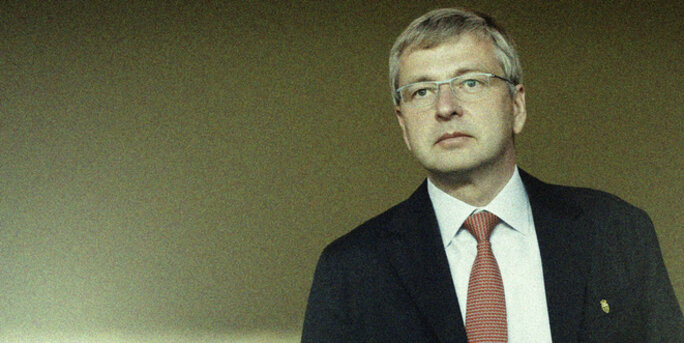
Enlargement : Illustration 4

Figureheads and convoluted setups are the order of the day for Rybolovlev. By way of example, the real recipient of the sale of Uralkali remains unknown. In 2008 Rybolovlev sold 25% of his shares to the Panamanian front company 'Keralt Global', which was administrated by Mossack Fonseca, the law firm which came to prominence after the publication of the Panama Papers.
Keralt Global features in the Panama Papers data obtained by the German newspaper Süddeutsche Zeitung and the International Consortium of Investigative Journalists (ICIJ), which transferred documents concerning the company to the EIC. The economic beneficiary of Keralt is a 49-year-old Russian called Maxim Markevich. Little is known about him other than that he owned a company in Monaco that closed in 2017 and that he has a PO box address in Switzerland. When the EIC approached his flat in Moscow it appeared to be shut up.
According to information gained by Western intelligence services the interests of Russian officials may be behind Keralt and Markevich. According to this theory, Rybolovlev's sale of his shares was simply a way for him to disentangle himself from the affair involving the 2006 mine accident. Neither the oligarch nor Yury Trutnev responded to questions submitted to them by Mediapart.
Another deal that raised questions was taking shape in the United States at the same time as the Uralkali-Keralt sale. In 2008, when the financial crisis was shaking the world, the Russian billionaire bought a Palm Beach, Florida mansion from Donald Trump – then a property tycoon and TV reality show host – for 95 million dollars. Trump himself had paid 41 million dollars for it in 2004. This unlikely 131% rise in value over four years would perhaps have remained nothing more than an anecdote if the former FBI director Robert Mueller, now special counsel for the US Department of Justice, had not begun an investigation in the United States looking into, among other things, suspicions that figures close to the regime in Moscow had invested in a future Trump presidency several years before his election.
Suspicions over the links between Rybolovlev and Trump were reinforced by the fact that during the US presidential campaign one of the Russian's planes was seen on the tarmac at Charlotte in North Carolina and at Las Vegas at exactly the time that Trump was stopping off there. Rybolovlev's camp has dismissed this as pure coincidence. “This is ridiculous,” said a White House spokesperson. “No member of the Trump campaign or Trump family travelled or met with Mr Rybolovlev during the campaign or any other time.”
In August 2016, meanwhile, it was the Russian billionaire's yacht that crossed the path of Trump's daughter, Ivanka Trump, and her husband, key Trump campaign official and now White House advisor, Jared Kushner, during their holiday in the Croatian port of Dubrovnik. Then in March 2017 the Palm Beach Post published a photograph showing that Dmitry Rybolovlev's yacht had recently been anchored off the British Virgin Islands very close to a yacht owned by hedge fund billionaire Robert Mercer, one of Donald Trump's biggest financial backers. A spokesperson for Rybolovlev told the US newspaper that the Russian had never met Mercer and had no relationship with him “whatsoever”.
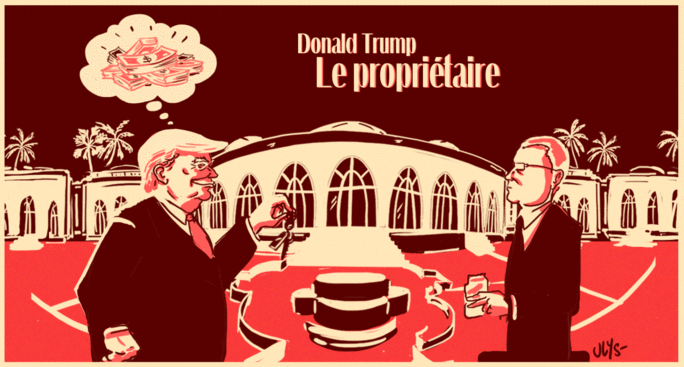
Enlargement : Illustration 5

Back in 2016 Rybolovlev had thought about setting up a holding company to buy the football club New York Red Bulls (NYRB) and as part of a deal allowing Red Bull to take a minority stake in AS Monaco. An internal presentation document detailed how a new company, Holdco, would own 67% of ASM and 100% of NYRB. “DR” - Dmitry Rybolovlev – would be the main boss owning 51% of Holdco, with Red Bull holding the remaining 49% stake. However, it is unclear what became of this secret project.
Rybolovlev's arrival in Monaco was much less discreet than his American adventures. Locals, including politicians, found it surprising he would choose 'the Rock'. “The political situation there is much more reliable than on Cyprus. Do you know of a state that is both as stable and opaque as Monaco?” asks a former member of the Russian's entourage, by way of explanation. Another advantage is that Monaco is a micro-state, with a resident population of 37,000, of whom just 9,000 are Monegasque natives, an environment where Rybolovlev has been able to quickly build a name and reputation.
He did this first of all by reviving AS Monaco's past glory as a leading team in French football. Despite its current disappointing results, the club qualified for Europe's coveted Champions League this season. It has also earned a certain reputation for its practice of successfully recruiting often exceptionally talented young players and reselling them several years later for huge sums.
Rybolovlev also enjoys dabbling in smaller business operations. In 2013 his 'family office' bought the restaurant Le bistroquet for 9 million euros. It was renamed Bagatelle, which means "a trifle" in French, a name that perhaps encapsulates what the restaurant represents compared with everything that Rybolovlev has dreamed of buying in the principality.
But the Russian's triumphant progress suffered a setback on Wednesday November 7th, 2018. That was when Dmitry Rybolovlev left the courthouse in Monaco having been placed under formal investigation – one step short of charges being brought – for suspected influence peddling, corruption, and being in receipt of information that breached the confidentially of judicial investigations. In a statement given to Mediapart, Rybolovlev denies ever being involved “in any wrongdoing or inappropriate conduct” (see the full text of his statement, and that of Tetiana Bersheda, below).
- Next episode, Friday November 16th: How Rybolovlev offered himself Monaco
-------------------------
In response to questions submitted to Dmitry Rybolovlev before publication of this report, Mediapart received the following statement from one of his lawyers:
"In response to your request of 24 October 2018, we would like to inform you that in light of ongoing legal proceedings, it is not appropriate for us to provide comments on the substance of your questions at this stage. In addition, we have serious doubts as to legality of the sources and accuracy of your information.
Nevertheless, we deny any and all underlying suggestions that Mr Rybolovlev might have been involved in any wrongdoing or inappropriate conduct."
Also before publication of this report, Tetiana Bersheda, who was submitted questions about the issues raised in this report, sent the following statement:
“In reference to your email below, I note that to reply to the questions you have addressed to me would constitute a violation of my duties regarding the professional confidentiality required of a lawyer. As a result, I am unable to give a positive response to your invitation.
Surplus to this, I limit myself to making clear that I have never collaborated in, or taken part in, an illicit activity or one that is in contradiction with the duties of my profession. Any insinuation of the opposite may become the object of legal action.
To this day, there exists no judicial or other decision that supports the insinuations that underly in your questions and, to human view, an upcoming publication.
Moreover, I am saving my explanations for the competent authorities in the ongoing procedures.”
-------------------------------------------------------------------------
If you have information of public interest you would like to pass on to Mediapart for investigation you can contact us at this email address: enquete@mediapart.fr. If you wish to send us documents for our scrutiny via our highly secure platform please go to https://www.frenchleaks.fr/ which is presented in both English and French.
----------------------------------------------------------------------
- The French version of this article can be found here.


